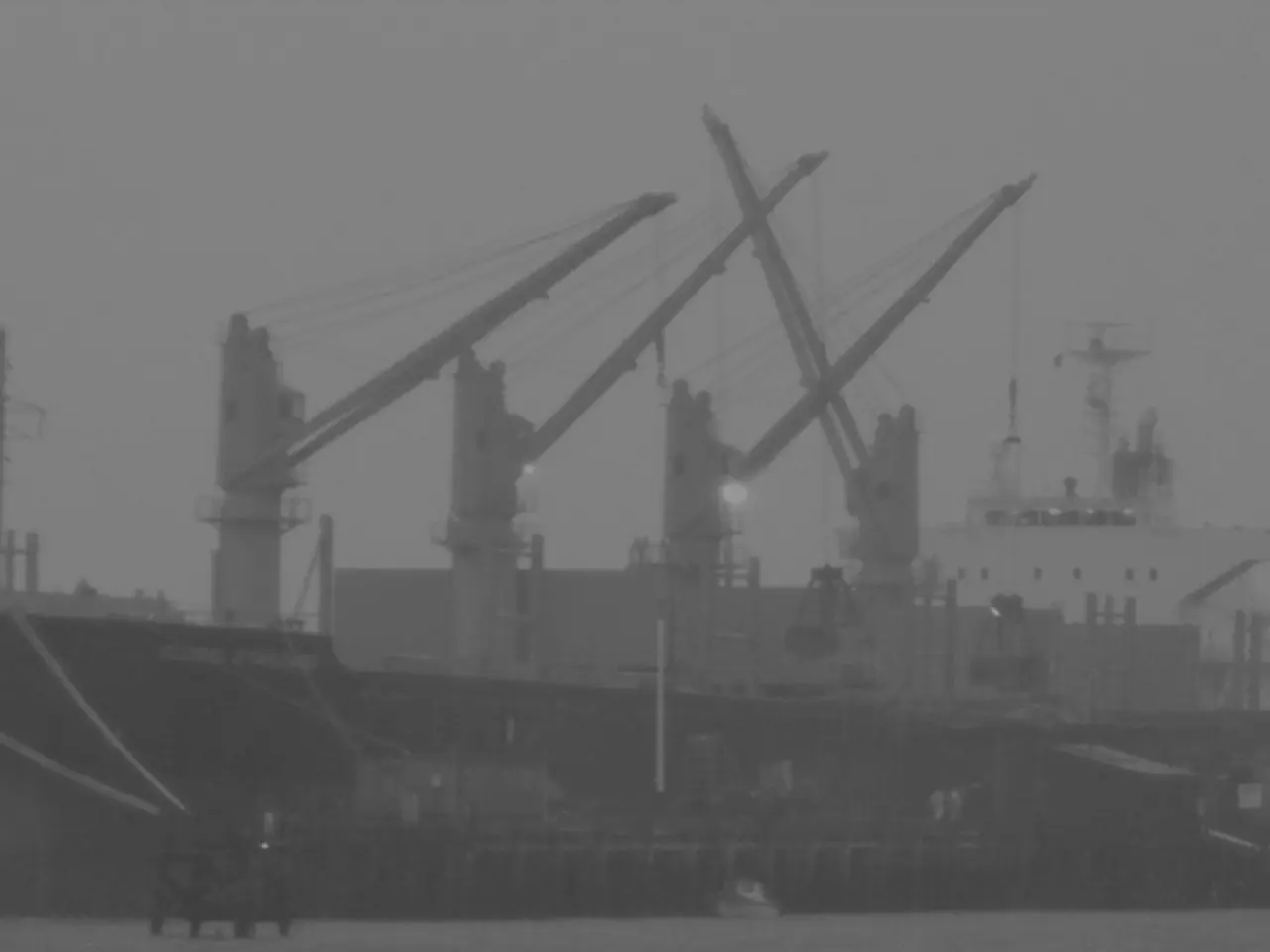Thyssen-Krupp suffers a setback as Japan clinches a billion-dollar contract deal
In a significant move for the Australian defense sector, the Australian government has awarded a whopping $10 billion contract to Mitsubishi Heavy Industries (MHI) to build 11 new frigates [1]. This marks the largest defense contract between Australia and Japan to date, and it's a setback for Thyssen-Krupp Marine Systems, who had hoped to secure the deal.
The new ships will be based on the Japanese Mogami class, known for their advanced capabilities and long-range capabilities. These frigates will be equipped with a 32-cell vertical launch system, capable of launching long-range missiles, and a stealth design, making them ideal for multi-role tasks such as surface and submarine hunting, and air defense [3][5].
One of the key factors influencing this decision was the Mogami-class frigates' ability to meet Australia's strategic and operational needs. The frigates boast a range of up to 10,000 nautical miles, aligning with Australia's naval strategy [5].
Australia also prioritized the ability to meet delivery schedules effectively. The first three frigates will be built in Japan with delivery starting in 2029 and operational by 2030. The remaining eight will be constructed in Australian shipyards [1]. This timeline was seen as better aligned with Australia's plans for the first three frigates to be operational by 2030 [1].
Japan is a key strategic partner in the Indo-Pacific region for Australia, and the contract strengthens defense ties, reflecting close strategic alignment between the two countries [1][3].
The Australian government has budgeted AU$10 billion for this project and an overall AU$55 billion for the surface combatant fleet over 10 years, indicating a commitment beyond initial acquisition costs toward integrated naval capability [1][5]. Despite Japan's limited export experience in warships, the Australian government viewed the deal as a vote of confidence in Japan and strategically beneficial [3].
Although Thyssen-Krupp offered a cheaper price and had more overseas shipbuilding experience, the Australian government's assessment concluded the Japanese frigate was a "clear winner" on multiple critical factors beyond just cost [1][5]. This decision reflects Australia's holistic approach, balancing capability, delivery, strategic relations, and long-term national security interests.
References:
- ABC News
- The Sydney Morning Herald
- The Australian Financial Review
- The Guardian
- Defence Connect
The decision to award a $10 billion contract to Mitsubishi Heavy Industries (MHI) for building 11 new frigates in Australia is significant, as it involves both the industry and finance sectors, with a budget of AU$10 billion allocated for this project. Additionally, this business deal reflects Australia's strategic relations with Japan, a key partner in the Indo-Pacific region, and strengthens their defense ties, indicating a long-term commitment towards an integrated naval capability.




